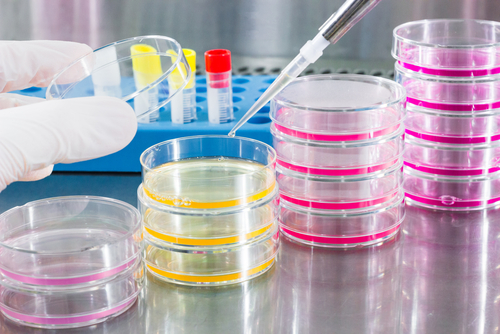Losing expression of a certain isoform of the HSD17B4 gene makes men more likely to get castration-resistant prostate cancer (CRPC), a lethal form of the disease that does not respond to treatment, a new study shows.
The study, “Loss of an Androgen-Inactivating and Isoform-Specific HSD17B4 Splice Form Enables Emergence of Castration-Resistant Prostate Cancer,” appeared in the journal Cell Reports.
HSD17B4 produces proteins that inactivate androgens — the male hormones required for the growth of prostate cancer cells — helping to prevent aggressive disease. That alone should slow the disease’s progression.
Yet studies found that HSD17B4’s expression was higher in men with advanced prostate cancer, suggesting that it was actually promoting disease progression instead.
In an attempt to clarify whether HSD17B4 protects men from prostate cancer or promotes the disease, Cleveland Clinic researchers analyzed levels of HSD17B4 in patients with localized prostate cancer and CRPC, as well as in healthy controls.
Because of a natural mechanism called splicing, HSD17B4 produces five different isoforms of the same protein. Each one comes from the same DNA code, but varies in amino acid sequence and physiological function.
Researchers examined the levels of all isoforms and found that isoform 2 was specifically suppressed in the transition to CRPC. Additional experiments revealed that only this isoform effectively inactivated androgen and protected patients.
While the total amount of HSD17B4 isoforms was higher in CRPC patients, most had lost isoform 2 expression, making them more prone to develop aggressive disease. This was confirmed in lab-grown cells lacking isoform 2. These cells had increased testosterone levels, which activated the androgen receptor, triggering CRPC development and progression.
“In contrast with other transcripts, functional expression of isoform 2 is specifically suppressed in development of CRPC in patients,” researchers stated.
“We are hopeful that these findings will lead to more precise and effective treatments for prostate cancer,” Dr. Nima Sharifi, a researcher at the Cleveland Clinic’s Lerner Research Institute and senior author of the study, said in a news release. “If men lack a specific isoform of this gene, we may be able to personalize their therapy.”

